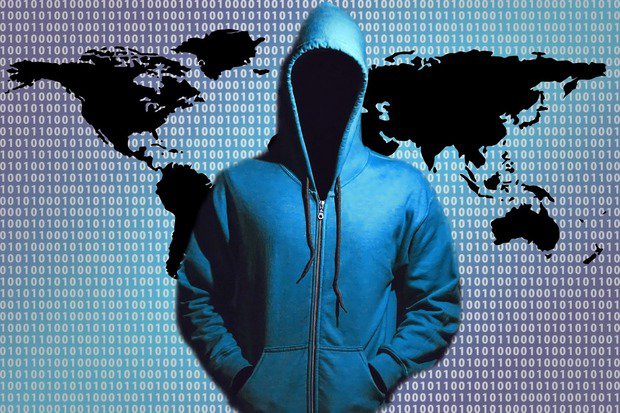Both Silent Circle and Lavabit recently shut down their encrypted email services. Lavabit was the first to take action following word that the United States government wanted data handed over that would violate customers' privacy. Ladar Levison, owner of Lavabit, said he faced the decision of complying with the government and betraying the American people or ending the email service he worked hard to build. He also said that he was legally unable to explain the events leading up to his decision due to recent laws passed by congress blocking his freedom of speech.
TrainACE - IT and Cybersecurity Training Blog
Exploring Secure Email After The Silent Circle And Lavabit Shut Downs
[fa icon="calendar'] Sep 24, 2013 5:25:28 AM / by Ryan Corey posted in Cisco, cyber war, Cybersecurity, Information Assurance, Ethical Hacking
What is Threat Intelligence?
[fa icon="calendar'] Sep 18, 2013 7:51:12 AM / by Ryan Corey posted in advanced persistent threat, Cisco, Cybersecurity, Information Assurance, threat intelligence, Ethical Hacking
Across the country and around the world, cyber attackers continue to discover new and improved ways of wreaking havoc with company's business operations. Their nefarious activities are responsible for billions of dollars' worth of damages in intellectual property theft. While cyber security teams attempt to circumvent these onslaughts, increased technological advancements continue to speed up the time between perceived threat and actual intrusion. How can a business entity keep up?
Spammed and Hacked: How Social Media Can Pose a Security Risk
[fa icon="calendar'] Aug 26, 2013 5:12:40 AM / by Ryan Corey posted in advanced persistent threat, CEH, Cisco, cyber war, Cybersecurity, Information Assurance, Pentesting, Ethical Hacking
Social networks are social by design. They mean to foster interaction, to put you in touch in one way or another. Some put you in touch with friends and family. Others put you out there for the whole wide world to see. Some uses are personal. Others are all business. In the end, though, social media platforms are all designed to be easy to access and easy to use. They’re intentionally informal. They’re the last place you’d expect to find classified intelligence or the kind of business secrets that companies diligently guard.
The Most Common Jobs for People Who Hold the EC-Council Certified Ethical Hacker (CEH) Certification
[fa icon="calendar'] May 20, 2013 3:45:05 AM / by Ryan Corey posted in CEH, Cisco, Cybersecurity, EC-Council, Information Assurance, Pentesting, Ethical Hacking
The term "hacker" is often associated with illegal online activity. However, there are hackers who perform 100 percent legal services, which are based on evaluating the information infrastructures of companies. For those who hold the Certified Ethical Hacker certification from the EC-Council, there are several jobs to consider that come with attractive compensation. Some of the most common jobs for hackers holding the CEH certification include computer forensics, incidence response, penetration testing and security analysis. Penetration testing is the most common job for new hackers, but some later advance to become engineers or take on a wider variety of tasks.
The Most Common Jobs for CISSP Certified Professionals
[fa icon="calendar'] May 13, 2013 5:15:03 AM / by Ryan Corey posted in Salary, Cisco, CISSP, Cybersecurity, Information Assurance, Jobs
A Certified Information System Security Professional (CISSP) is someone with considerable experience in information technology (IT) security fields who has also completed a rigorous exam to verify his or her qualifications. CISSP holders must also meet continuing education requirements to maintain their certification.
The Scoop on the New DIARMF Process
[fa icon="calendar'] Mar 5, 2013 4:02:09 PM / by Ryan Corey posted in Cisco, Cybersecurity, Information Assurance
The Department of Defense last changed its approach to cyber security, or, in DoD parlance, “Information Assurance,” in 2006, when Defense Information Technology Security Certification and Accreditation (DITSCAP) was replaced by Defense Information Assurance Certification and Accreditation Process (DIACAP). The small change in name, with “Technology Security” replaced by “Assurance,” said little about the reason for the change in system, but one intent of DIACAP was the promotion of consistency and standardization, all in the hope that cross-service reciprocity and cost savings would follow.
How Honey Pots and Honey Farming is Used in Cyber Security
[fa icon="calendar'] Jan 29, 2013 3:45:21 AM / by Ryan Corey posted in advanced persistent threat, Cisco, Cybersecurity, Exploits, Information Assurance
The term “honeypot” or, as it sometimes appears, “honey pot,” came to computer security from the world of espionage, where it referred to an agent who would be sexually available to a target. If all went as planned, the target would be compromised, either by sexual blackmail or because the relationship led the target to share secret information.
The Cyber Security Battlefield Grows More Dangerous
[fa icon="calendar'] Jan 14, 2013 10:42:28 AM / by Ryan Corey posted in advanced persistent threat, Cisco, cyber war, Cybersecurity, Information Assurance, Pentesting, Ethical Hacking
A huge portion of modern society uses some form of digital technology on a daily basis. Many conveniences on a national and personal level have been made possible due to this technology, but also opens up a Pandora's box of a whole new set of problems as well. The cyber battlefield grows more dangerous as organized hackers and other cyber threatening criminals set out to exploit the conveniences produced by the digital age for their own gain. There is an ongoing challenge, therefore, creating cyber security or defenses to protect the country from attacks; but have, on many occasions, been successfully breached to raise considerable concern even among the most savvy cyber security agencies in the world.
What is Advanced Persistent Threat
[fa icon="calendar'] Dec 11, 2012 11:25:45 AM / by Ryan Corey posted in advanced persistent threat, CEH, Cisco, cyber war, Cybersecurity, Information Assurance, Pentesting, Ethical Hacking
The term advanced persistent threat (APT) was originally used to describe complex, ongoing espionage perpetrated by foreign governments. However, today, APT typically refers to a category of cybercrime directed toward businesses or government entities. APTs are usually online attacks used to achieve goals beyond those that can be met by a single security breach, but some may involve malicious activity conducted onsite. Compromised computer systems are continuously monitored by the attackers or added to a stable of slave computers to be used to achieve some future goal. APTs are most often perpetrated by employing some form of malware, and IT technicians defend against APTs by installing antimalware software and hardware firewalls.
What is Malware Analysis?
[fa icon="calendar'] Dec 4, 2012 9:23:03 AM / by Ryan Corey posted in Cisco, Cybersecurity, Information Assurance, Malware
Nearly every security breach in a company’s online network is caused by some form of malicious computer program. These programs are generally referred to as malware, but they exist in several distinct categories, including viruses, worms and Trojan horses. Being able to identify when and how malware is affecting a computer system takes specialized training, but this knowledge increases the value of any IT security technician or manager who possesses it. These individuals are capable of assessing the scope and severity of a malware infection, which leads to efficient and detailed planning of the steps required to eliminate the malware and recover any lost data or system resources.
About the CompTIA CASP Certification and Who it is Best Fit For
[fa icon="calendar'] Sep 25, 2012 7:45:31 AM / by Ryan Corey posted in CASP+, Cisco, CompTIA, Cybersecurity, Information Assurance, Ethical Hacking
The CompTIA Advanced Security Practitioner (CASP) certification is intended for professionals with at least ten years of experience in security administration. Five of those years must be hands-on technical experience. The CASP does not require that any previous exams have been passed, but is a higher-level exam than the CompTIA Security+.


